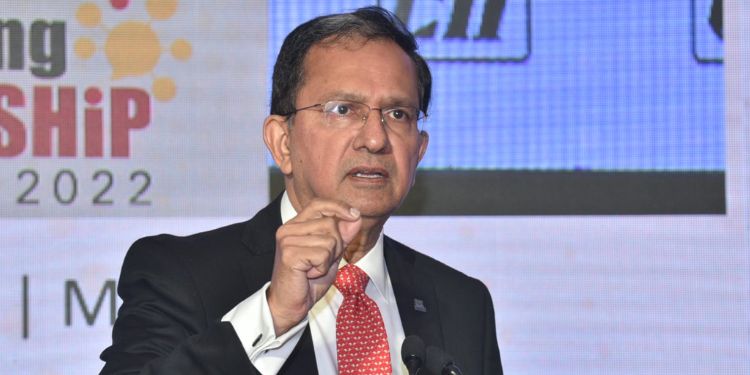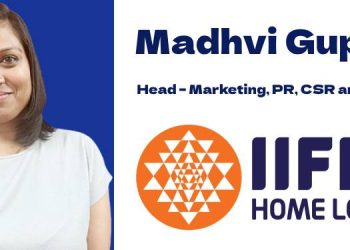“Marketing is not going to go out of fashion. The essentials of marketing, whether it’s agility or uncertainty or certainty does not dramatically change over a period of time. What changes is the perspective that we have,” said Suresh Narayanan, Chairman & Managing Director, Nestle India. He was speaking at the 6th CII Marketing Leadership Summit titled – ‘Marketing Agility in the Age of Uncertainty on 20 December 2022.
“Earlier we had VUCA (volatility, uncertainty, complexity and ambiguity). Now we’ve got a new concept called BANI (brittle, anxious, non-linear and incomprehensible) and it has become completely anarchic,” he said.
Narayanan underlined that marketers need to go back to some of the roots that make marketing interesting.
He pointed out that one of the problems in the way in which we approach the discipline of marketing was planning. He quoted Jeff Bezos who said: ‘Any plan won’t survive its first encounter with reality. The reality will always be different. It will never be the plan.’
“One would have planned everything and aligned everything and go out to implement those, while thinking that they are going to yield results. Or the market shares are going to have an uptick or profits are going to improve, etc. In reality it’s going to be something different. The reality-plan gap becomes bigger and bigger. That reality is a challenge we face as professionals today,” he said.
Narayanan spoke about agility in marketing.
“One part of agility is left-brained, which is analytic, logical or factual, not circumstantial. That part of the brain you need in abundance, that part of the brain is trained by business schools very well. The right hand side, which is being agile, is a right-brained activity which involves emotions, senses, sense capabilities and the ability to connect the dots, that makes the marketing profession what it is,” he said.
No organisation wants to be static, noted the speaker, and pointed to three big uncertainties.
“The geopolitical uncertainty – the Great Wall is now expanding between China, the US and other powers. That’s going to affect the economic flow. When and how it is going to hit your own fortunes in India only time will tell. It will have an impact on us albeit minimal because we are a self-contained economy with global exposure in particular sectors. Nevertheless, there will be an impact,” explained Narayanan.
He referred to talk about the economic recession in Europe and the US and the ongoing war between Russia and Ukraine. “We don’t know what is going to be the end of it. Finally, there is a fuel crisis,” he said.
Noting that Collins dictionary’s word for 2022 was ‘permacrisis’, the Nestle CMD underlined the need to use one’s left and right brain to analyze and know the entire value chain: “Remember as marketing people you are responsible for one part of the value chain, but the fact is something else happening in some other part of the value chain can affect you.”
Orchestrating Agility in Uncertainty
Narayanan delved into what takes it to orchestrate agility in uncertainty
“There are five elements here, core strategy which continues to be important. Brand and purpose – what it stands for cannot and should never change irrespective of uncertainty or complete collapse. We tend to make changes as marketers because we believe that a new flavour of the season should be infused into the brand. Strategy remains the same and it gets adapted but the brand and the purpose and what we call the value creation ecosystem remains constant over a period of time,” he emphasised.
The next element he touched on was structure, comprised of empowerment and enablement.
“The more the uncertainty, the greater the degree of empowerment and enablement. Leadership is about hope and giving a sense of purpose and direction. It is providing an umbrella that an organisation is behind you. The structures have to reflect that. Greater devolvement of powers to the ones who take the decisions (is needed),” he added.
Talking of processes that can help agility, Narayanan opined, “Some organisations still have an archaic process of working. Deconstructing is always a difficult process because there are two processes involved: one is called ego and the other is power. The ways of working, prioritising, and decisioning are also becoming more and more important. People are what makes things stick. Nowadays we embrace technology; in reality technology is an enabler for people. People are not to become slaves for technology. I submit that in today’s organisations values and ethics have to be injected and infused – we are losing it. We are becoming self-centered in the way we look at ourselves.”
The speaker noted that the pandemic redefined relationships and touched on the need to remain empathetic with the example of Nestle, which continued to source milk from 60,000 women dairy farmers in Punjab through the pandemic.
“One instruction I have given my factories was that every drop of milk has to be collected and processed. We need it or not, it should be done because it’s about trust these people have had in us in the last 60 years. Community outreach is important,” he explained.
Everything moved digital overnight during the pandemic, recalled the speaker, pointing out that people rose to the challenge.
“Many things have changed around us, the business landscape is changing. There were 250 million recipe searches and more than 10 million subscribers to food channels. There are almost 7,000 food groups with more than 100 million members on social media,” he said.
On the subject of working from home, he urged leaders to create an environment where people want to come and participate and work. “That’s the job of leadership. That doesn’t happen by throwing out incentives. Agility is really the ability to move quickly and easily in response to change or challenge,” he added.
Transformative and Competitive Agility
Agility could be transformative, which happens over time, or competitive, noted Narayanan.
“Milkmaid was introduced in India in 1912. How has the brand transformed itself? It began as a milk substitute at a time when milk was short in this country. What have we done over the years? From a milk substitute it has gone on to become a dessert substance. And then milkmaid gets into the digital ecosystem. Brands have to recast themselves over a period of time. This is an opportunity for agility in uncertainty. So, innovation is core to your survival,” he said.
Nestle, which is 150 years old keeps redefining itself, said its CMD. He cited the case of the company entering the baking space with baking kits and experimental recipes during the pandemic. The brand was responding to changes in consumers, with baking emerging as the most popular pastime for both men and women. “All of this redefines the scope of your brand and extends it over a period of time,” he observed.
Narayanan noted that brands need to move with the consumer needs and expressed pride that Nestle switched to paper straws when there was no legislation in India.
“We moved with this journey because we knew that this was right. The issue is not about profitability but of what is right for the consumer and environment. 30 million straws were eliminated. Responsible leadership means responsible actions, and this is one part of it. This is using the consumer journey to reignite the growth,” he explained.
The speaker surmised saying that great marketing actions can redefine the way in which organisations move and shift.

















